Magpul—TMAG 20 AR/M4 GEN M3
According to the company, Magpul’s original 30-round TMAG 30 (translucent polymer magazine) changes…
According to the company, Magpul’s original 30-round TMAG 30 (translucent polymer magazine) changes…
According to TOPS, when the original El Chete was released in 2017 it…
Peeking into someone else’s everyday carry (EDC) setup is like getting a backstage…
The V Exercise was created for those who would like a continuous moving-and-shooting exercise that…
The tripod is the essential tool to allow the precise delivery of fire from any…
The skill of firing accurate rounds into a threat from retention is an underappreciated and…
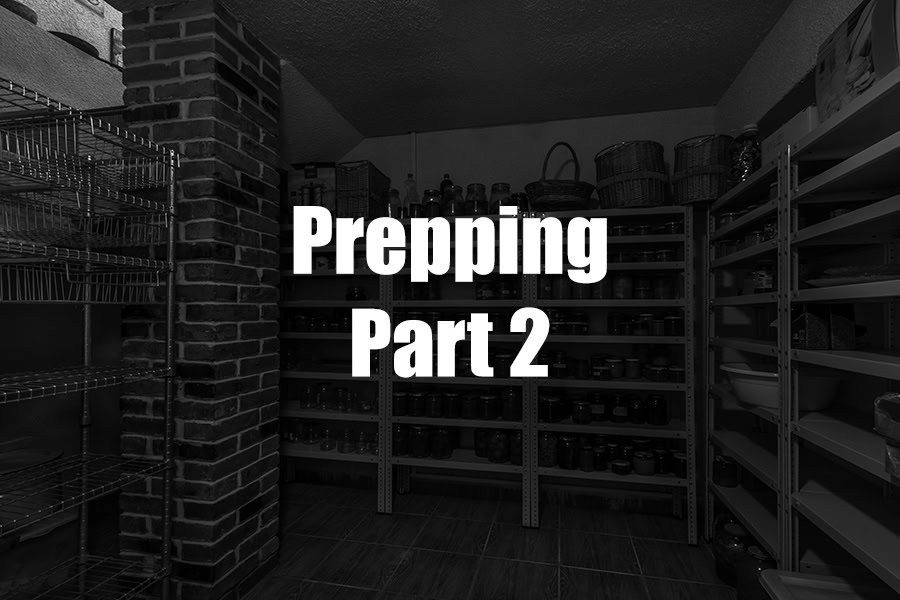

In this second article, I am going to continue with SUSTENANCE as it is a huge section of prepping we all need to concentrate on.
In my last article, I skipped covering water purification. I did this on purpose. There are as many ways to purify water as there are rifle calibers.
Never pour unclean/unpurified water into any container, which will ultimately have pure water in them. The micro-organisms will live just fine in the jug, and when you add pure water, they will start to grow again. If you are purifying water in the same container, either chemically or by boiling, of course, this doesn’t apply. Simple but very easy to forget under stress.
All over the world, people have to boil their drinking water to make it safe. I have to admit it is a pain, but if you have no chemical alternatives available, it is the best option.
I have seen people use an Altoids box as their planned option to boil water in. I can tell you for sure it will boil dry long before you produce safe water. In this case, bigger is better, and you will use the same fuel (after it boils), keeping a large pot boiling as a small pot, so get serious. If the water is not clear, you should pour it through multiple layers of fabric to get the solids out before boiling.
The boiling pot is the ONLY container you have, which is safe for clean and dirty water—end of story. Do not mix this up. It really can kill you.

Bleach is the most common water purifier available. The formula you should remember, or better write it on your dropper bottle.
Your best plan is to again filter the water into your container through layers of fabric, then add the bleach. The book says 15 minutes; I much prefer 30 minutes for wait time before drinking.
This is best done in water bladders or canteen type containers and is an exception to the rule of dirty water in your containers.
This can be as simple as pouring your water through multiple layers of fabric to remove solids before using a water filter/purifier or before boiling.
Water filters come in a wide array of sizes and uses.
The Lifestraw is one of the most popular options for water filtration, with good reason. It’s cheap. And light. Very intuitive to use, even for a small child old enough to use a straw.
However, it does have shortcomings. Like how do you get clean water into a pot to rehydrate your meals? This is very difficult to rig as an inline gravity filter without having all your necessary items beforehand—something to consider.

This is what most casual hikers/camper consider to be a water filter. I’m only going to post two because literally, there are hundreds. Do your research and decide what fits your needs. In a shameless plug, I am an MSR fan. Have been for 30 years.
Important note – do not let the elements inside these or any other types of filters freeze. It will crack and no longer be safe for filtering water. It’s your life here; make sure if it’s cold, you carry the filter element next to your body inside your coat. Also make sure you have spare filter elements and seals on hand to replace them if you drop or break one.


Where most get a sideways is in their own homes. If the water you have in your tap is safe to drink with adequate filtration, why use your backups?
One of these systems under your sink or at the line as it enters your house makes all the taps safe as long as the water is flowing.

Use your household water as long as it is working, and when filling your jugs and other portable storage like bathtubs and water jugs.
It is important to remember emergencies generally give some warning. In the case of this pandemic, one of the things most ran out of, and panic bought was cases of bottled water. One of these in each bathroom of your house and another in the kitchen will set you up with cooking and drinking water.
Building some type of stand to get them 8-12 inches off the floor, of pallet wood, milk crates, US tax code, or any other materials will make it much easier to fill containers from the spigot.


Bulk water storage is also great for flushing a toilet, just fill the toilet tank, and it should work. However, if your system relies on pumps (municipal sewer), it will back up sooner than later, no matter how much you add water. Good to keep in mind if you aren’t on a septic tank.
These are gravity fed, ceramic filtered water systems. They also look nice on your counter.
The listed version also filters heavy metals and chlorine.

I talk about security with some reservations because not everyone can run out and buy any firearm they want. The US is divided into basically two areas concerning firearms now. You have the communist-run areas on each coast, and in Chicago, then you have most everywhere else. I know that is a generalization but look at the map. Without starting an argument, just research your local laws and act accordingly with your moral compass.
Security is not all about buying guns and ammunition. It is fun, but you can do more with a cordless drill and box of 4-inch deck screws in your front and back door hinges and strike plates.
This will keep a reasonably strong person from kicking your door frame apart, as well as making the frame tighter. The small screws coming with most hinge and lock kits are a joke, with little support to the door.
Other things you can do to reduce or remove outside observation is cut plywood to fit the window frame. Use a 2×6 frame inside to hold the plywood against the glass. This is a stopgap measure at best and not for long term survival, but it will keep the casual looter from seeing what you have inside. Heavy blinds or thermal curtains also work well, with the same results.
Heavy steel security doors are made now looking like the average screen door, with the same screw procedure and a heavy deadbolt lock they are viable additions to your home. Most landlords encourage home improvement and may give rent credit for doors.
I am writing this for the perspective of a new firearms owner. Yes, I know, if you’ve owned guns your whole life and learned one caliber is best for everything, and no one knows anything but you, this is not the section for you.
Those new at this listen up. You can do everything in the world today, and the world after everything goes to hell with three guns. They are legal everywhere you can own a gun, and will do the job they were designed for as well as they did 100 years ago.
They don’t do everything perfectly; they fill a broad niche, unlike specialized firearms like handguns and AR types. And today, as I write this, ammunition is available online and in retail shops.
First rifle to buy is a 22Long Rifle. I did not say a handgun. Handguns are for experienced users. A rifle is easy to learn to shoot over a weekend with an experienced instructor. Recoil is non-existent, and it is not a loud report, especially with standard velocity ammunition. Add a quality optic, either a red dot or a conventional telescope. You will pay at least as much for the scope as you did for the rifle. This is normal and prudent in your use of funds. It also shows you understand seeing what you are shooting at, and having consistent adjustment in your scope is important to you and yours. Buy the same type of action as your centerfire rifle, and your skills transition directly to the heavier rifle.
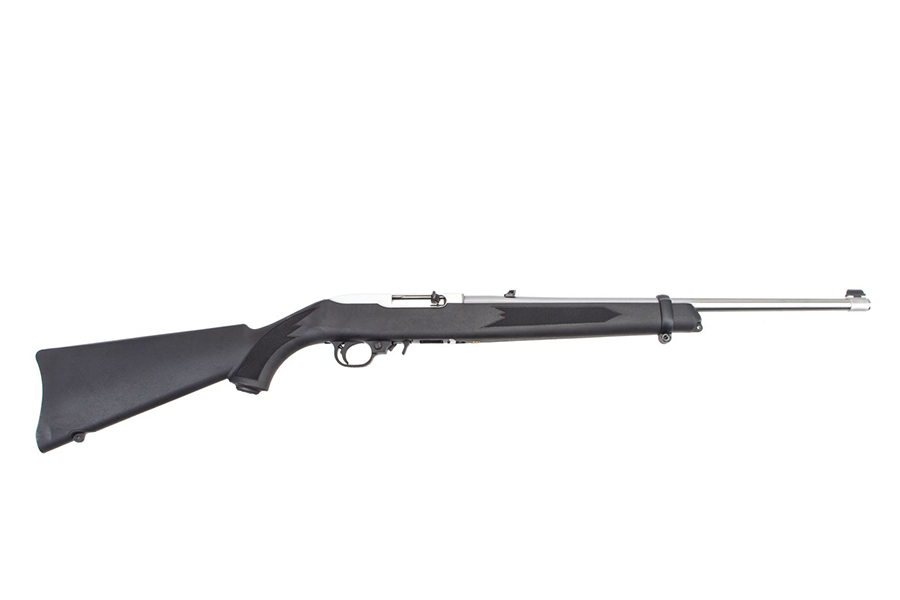
Which one? I honestly don’t know of any bad ones, so if you have an old 22 stashed in the back of your closet, use it. Have someone who knows what they are doing clean it and see if it’s functional. Most 22 rifles will run forever with a good cleaning.
Plan on $1000-1200 if you don’t have a 22 already for rifle, scope, and 5000 rounds of ammunition. I understand that sounds like a bunch, but you will shoot 500 rounds learning and then the rest for target shooting and small game. It really will be close to a lifetime of ammunition for the casual user.
Brands of rifles since it has to come up. Understand these will be producers of new rifles.
If you have an AR rifle, you can get 22LR conversion kits, but you need a specialized sight for the kit as most rifle scopes made for the AR can’t focus close enough to use the 22LR on small game.
More than I can list were made over the last 100 years, and used rifles will tend to be in excellent shape internally.
Do your research and take everything with a grain of salt. I am a writer, and I’ve seen bad examples of almost every maker. You need to research virtually to the month of production to identify issues. This isn’t as prevalent with 22 rifles as centerfire, but it does happen.
The second gun you should buy is a 12 Gauge, pump-action shotgun. It needs to be a 12 gauge because you can find ammunition everywhere. Along with buying a shotgun, make sure yours comes with the option of changing the barrel and chokes. Everything, from Polar Bears in Alaska to Quail weighing less than a pound in Arizona, can be killed with a 12 Gauge and the appropriate shot size.

Looking at my ammo rack, I have 100 slugs, and 500 (Double ought) 00 Buck and another 600-800 rounds of #4 to 71/2 shot.
The 12 gauge with an 18-inch barrel makes for a formidable defense gun, loaded with buckshot or slugs. Being in law enforcement for so long, I have a well-earned respect for what a shotgun is capable of at gunfight distance.
I have only two manufacturers to recommend. This is solely to the ease of changing barrels and long-term reliability. Of course, there are more, but I’ve had the best luck with Remington 870 and Mossberg 500.
I have extensive experience with them both, and the versions with the average length magazine tubes are best for the new user. Get the extra 18-inch barrel as well as the standard length-24,26,28-inch barrel for hunting. Mossberg lists a package gun with 2 barrels that your local dealer can order for you.
The third rifle you need to finish this battery of arms is a Bolt Action, centerfire in 30-06 Springfield.
This is where the hackles get raised in the community. The 30-06 with appropriate bullets is capable of doing everything in North America you are likely to need it for. It is originally a military cartridge and was adopted in 1903 in its first form, then in 1906 as the 30 Government of 1906. It was chambered in several US military rifles, including the M1 Garand. It has been the most sold caliber of centerfire ammunition most of the last 70 years and, like the 12 gauge, is available everywhere. It is the rifle cartridge I seem to have the most rifles chambered in; I have a large assortment of bullets for different uses which I load depending on the animal I am hunting. I have killed everything from Elk to rabbits and have never thought I was under gunned. It is a bit rough on rabbits.

The 30-06 has also been the parent case for over 40 cartridges (at my count) with mostly successes. The 30-06 is going nowhere and again is as common as the 12 Gauge on dealers’ shelves.
If you search online, you will find a multitude of makers chambering rifles in 30-06 Springfield.
Again, research is in order because the firearms industry is cyclic with production and quality.
In no particular order, you have Remington and Winchester. The new rifles from Winchester’s Model 70 line are equals to post WWII production guns. They’ve never been better than now.
Then the smaller makers Ruger, TC, CZ, Bergara, and a host of semi-custom builders. Search for 30-06 rifle makers online and pick the one that fits your budget after your research.
If I were presented with a CZ550 or Winchester Model 70, I would be very happy.
You are fully set for your battery of firearms after these 3. However, there are niches in there. You could also fill in with a lighter centerfire rifle. If a semi-automatic is legal in your area, I have to recommend the AR15 from any of a multitude of manufacturers. The AR does not stand for Assault Rifle; it stands for Armalite, who was the original manufacturer of the series. I highly recommend a 556 chambering; it allows you to shoot 223 Remington ammunition, but the reverse is not true. The 556 develops higher than safe pressures in a 223 chamber. Its better safe than sorry.
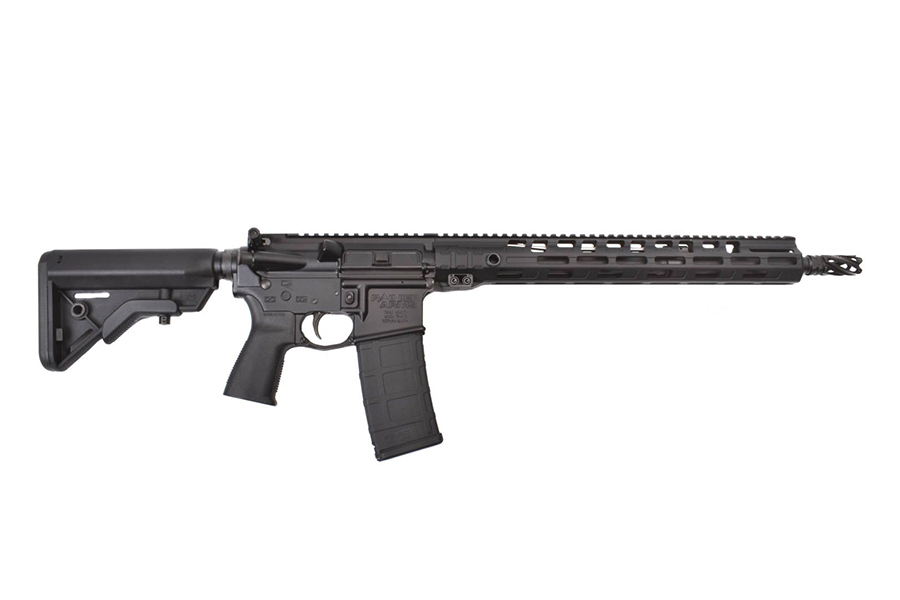
What isn’t commonly known to new buyers of firearms is the AR15 is a very easy rifle to shoot, there is little recoil, and they are usually very accurate. They make exceptional target guns as well as defense and hunting rifles. I have a pair of them for predator hunting and love them.
With your new AR, you need magazines. They come in many different capacities, but the standard is 30 rounds. Lower capacity, 20, 15, 10, 8 and 5 are sometimes needed for state regulations. They also come in much higher capacity, 60-100 rounds, and larger, but these get very heavy and unbalance the rifle. They are fun, though, if you aren’t carrying them far. The joy of AR rifles and pistols is the magazines are the same no matter the builder as long as they are chambered in the same cartridge.
You don’t need anything else for your new AR, except possible optics. I like two different optics on my AR rifles.


Both of these sights need to sit high enough; you don’t need a cheekpiece on your stock to see through them and back up iron sights as well. Get good ones and zero them at the same time you do your optics. Lay in a supply of batteries for whichever sight you chose; they are cheap and last forever. My Aimpoint Pro has been on for four years, and the battery hasn’t needed replacing yet.

Get the front and rear steel sights. These are no place to skimp on quality. The steel is slightly heavier than the polymer but better designed for long term use.
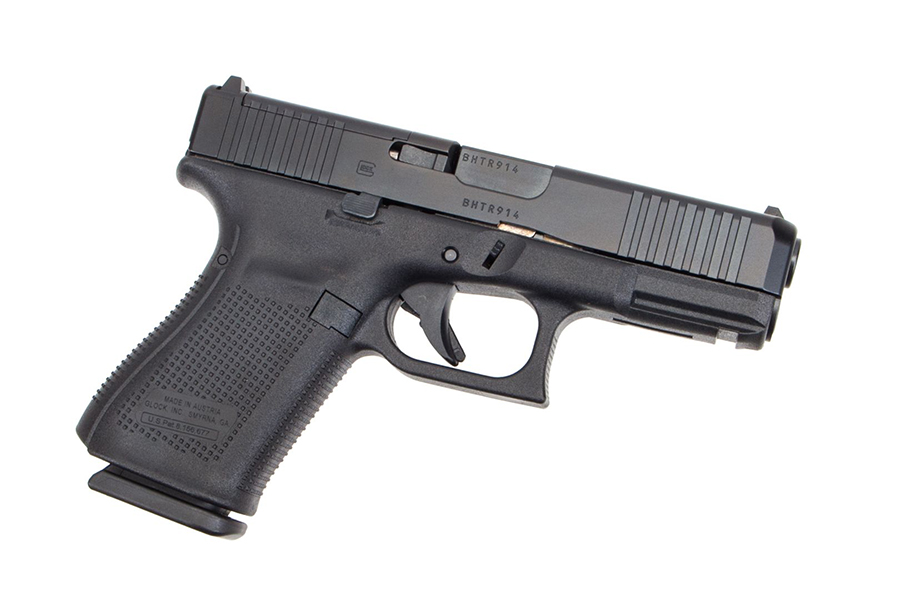
I preface this section with a disclaimer. A new gun owner needs training. You also need close supervision with a handgun, especially.
The NRA or state hunter safety course gives a good background in general firearms safety. These are available almost everywhere if you look for basic instruction on all types of firearms. Then any of the basic pistol courses offered by the mass of firearms instructors out there. For a new shooter, I recommend the NRA Basic Pistol course. It is a place to start and recognized by the majority of states as a handgun instruction course for the Concealed Carry Permit.
You also need instruction on holsters and methods of carry. A handgun has a nasty learning curve, and you can shoot yourself or others using the wrong holster. If you disagree, you need instruction.
If I had my druthers, I would have you take a training course on handguns, shoot the different types and then have you buy one after you found the one you like.
Because there are so many out there, it’s a can of worms telling people what to buy. I will make it as simple as possible for a new user. Get training, then buy the Glock 9mm pistol fitting your hand the best. The model 19 is as close to a universal fitting handgun as it gets.
The 9mm doesn’t recoil significantly, and new shooters take to them quickly with no bad habits to unlearn. There is a reason police departments like them so much. They are relatively low cost, and magazines are very common and cheap compared to other handguns. Holsters are available in every style, made to fit any body type or sex. It does matter how a holster fits your body.
And with modern ammunition, there is NO effective difference in handgun cartridge performance. NONE
Don’t believe your local gunship commando; there is a reason the 9mm is the most popular police cartridge today. It works well, is easy to shoot well, and has a decent magazine capacity. As soon as someone starts in with what is better, the 45/40/9mm, etc. walk away. It’s about the bullet you shoot, not the cartridge.
Buy modern Hollow Point ammunition like the Federal HST or the Speer Gold Dot (my favorite) and carry with peace of mind. I refuse to argue about handguns, especially with those who remain ignorant.
Check out this book; it’s a fascinating subject. Well worth the price of the hardcover. Its one of the first books pulled out of my reference shelf by visitors.
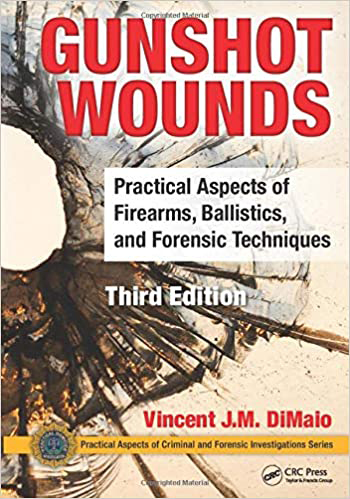
Part 3 follows – Communications
Check out more in our Blog section.
Want more posts like this one? Subscribe to Guns & Tactics to receive email updates and special offers direct to your inbox!
Social Links:
– The views and opinions expressed on this web site are solely those of the original authors and contributors. These views and opinions do not necessarily represent those of Guns & Tactics, the administrative staff, and/or any/all contributors to this site.
– Affiliate Disclaimer: Guns and Tactics is reader/viewer supported. This post may contain affiliate links and we may earn a small commission when you click on the links at no additional cost to you. As an Amazon Affiliate I earn from qualifying purchases.
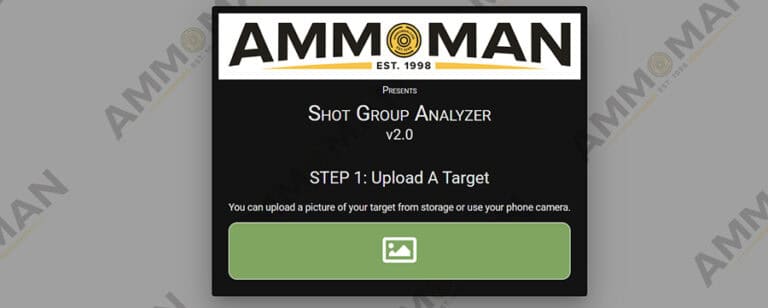
AmmoMan.com is launching the Shot Group Analyzer, a free online tool that helps shooters measure their accuracy quickly, easily and definitively.
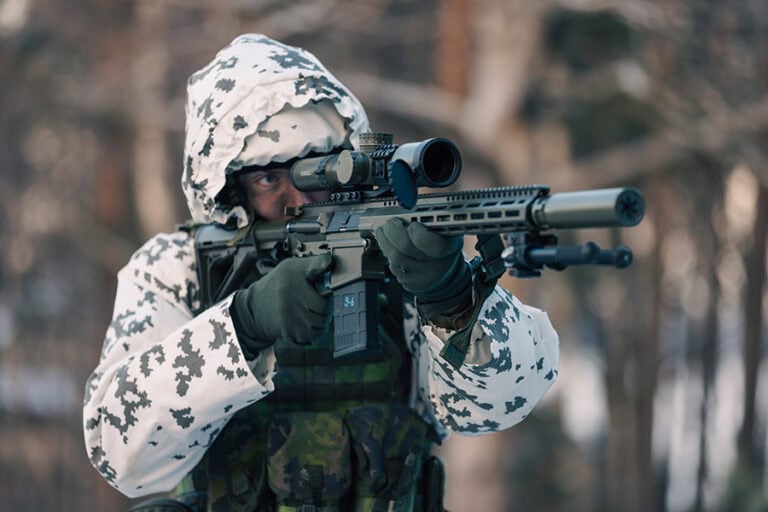
The Finnish Defence Forces Logistics Command and Sako Ltd signed a contract for the procurement of the new Rifle System M23.
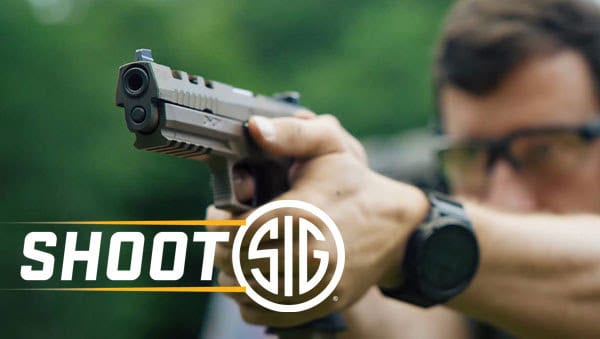
SIG SAUER is proud to introduce SHOOT SIG™ – a brand new shooting experience that takes plinking to the next level.
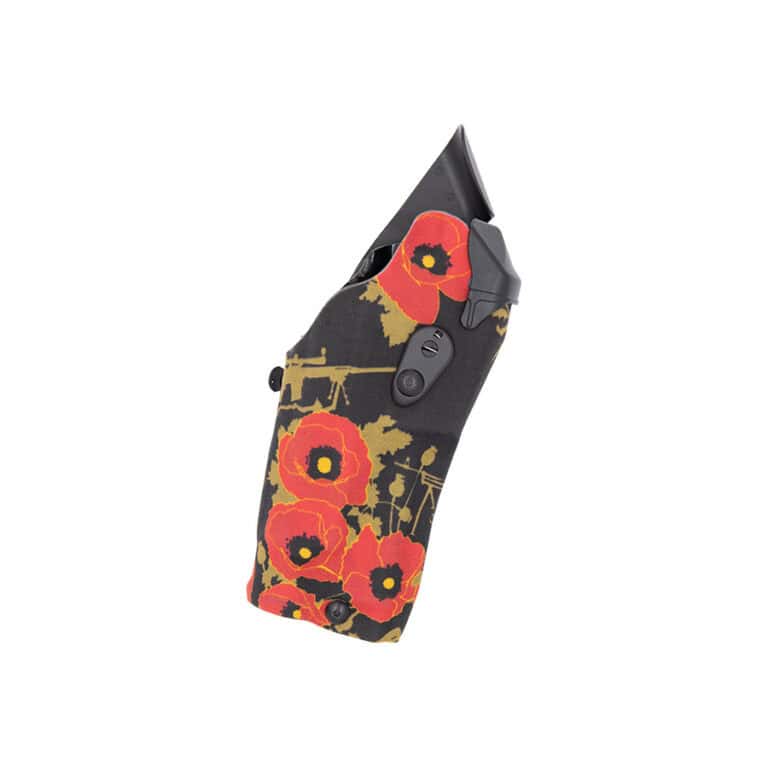
Safariland unveiled the Aloha POW Poppies of War a signature print licensed to Safariland as part of a holster collaboration with Otte Gear.
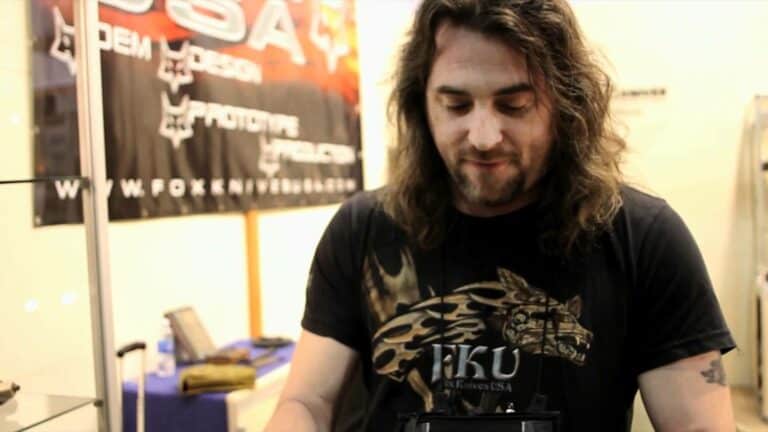
Mike Vellekamp, owner and co-founder of FOX Knives USA presents the FX-301 Dobolock knife designed by Sami Stinner, which just won the “Most Innovative Design” award this year…
Israel’s pavilion at the 2012 Eurosatory defense and security exhibition this June will include some 24 members of the Israeli defense industry plus SIBAT, the Israeli Ministry of…

AmmoMan.com is launching the Shot Group Analyzer, a free online tool that helps shooters measure their accuracy quickly, easily and definitively.

The Finnish Defence Forces Logistics Command and Sako Ltd signed a contract for the procurement of the new Rifle System M23.

SIG SAUER is proud to introduce SHOOT SIG™ – a brand new shooting experience that takes plinking to the next level.

Safariland unveiled the Aloha POW Poppies of War a signature print licensed to Safariland as part of a holster collaboration with Otte Gear.

Mike Vellekamp, owner and co-founder of FOX Knives USA presents the FX-301 Dobolock knife designed by Sami Stinner, which just won the “Most Innovative Design” award this year…
Israel’s pavilion at the 2012 Eurosatory defense and security exhibition this June will include some 24 members of the Israeli defense industry plus SIBAT, the Israeli Ministry of…

AmmoMan.com is launching the Shot Group Analyzer, a free online tool that helps shooters measure their accuracy quickly, easily and definitively.

The Finnish Defence Forces Logistics Command and Sako Ltd signed a contract for the procurement of the new Rifle System M23.
© 2025 UN12 Magazine
© 2025 UN12 Magazine
Wait! Don’t forget to